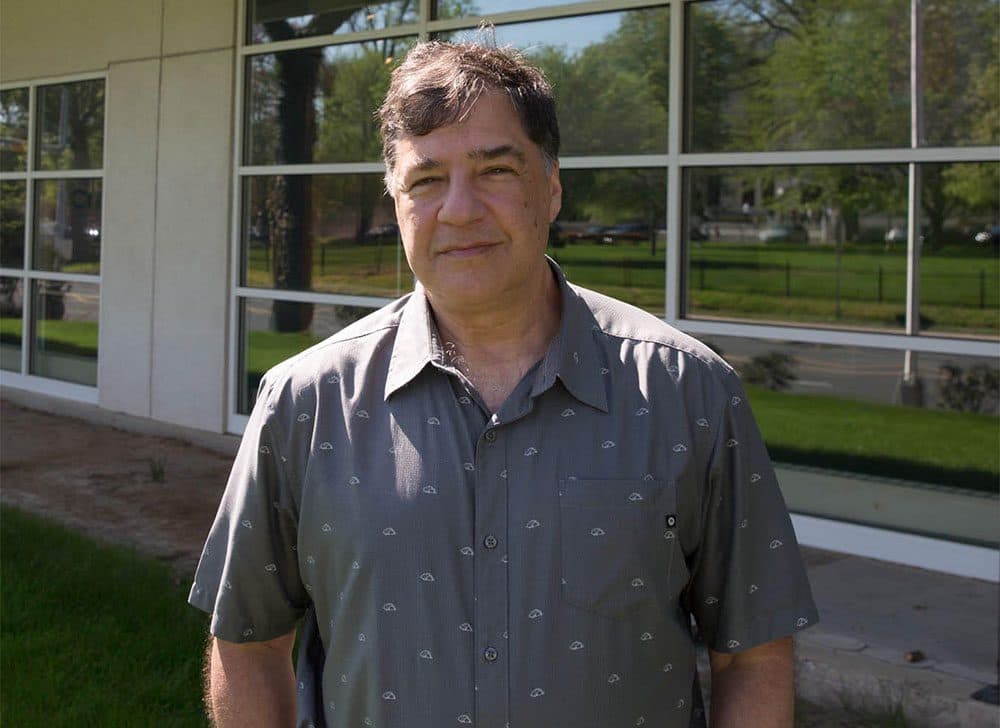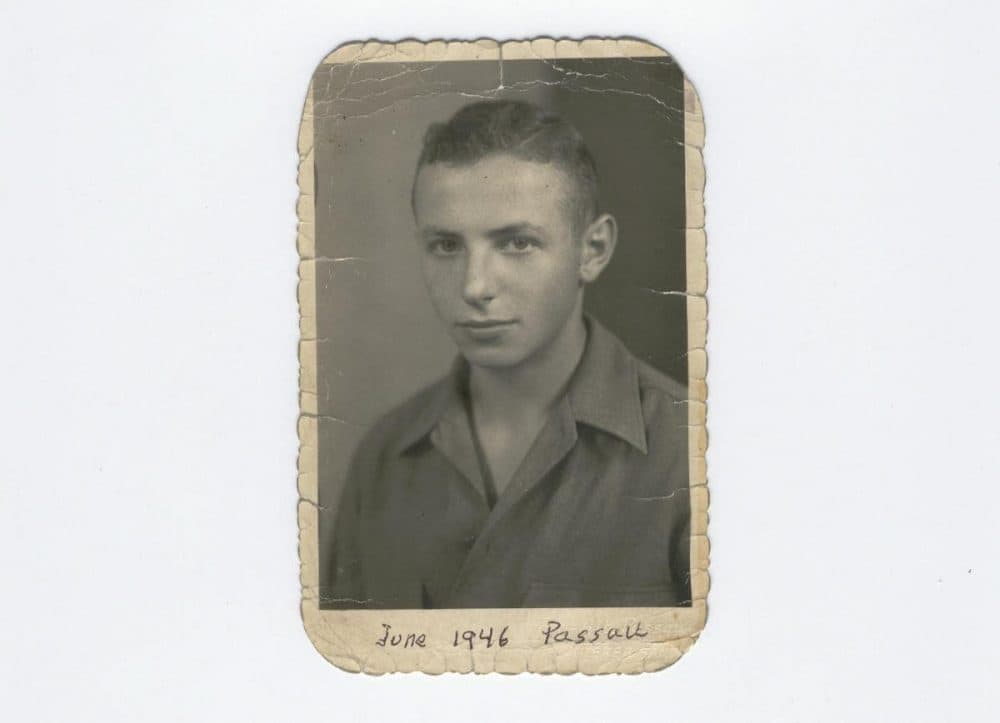Advertisement
Rediscovered Tapes Detail Memories Of Brookline Holocaust Survivors
Resume
For years, hours of videotaped interviews with survivors of the Holocaust sat packed away in a closet in Brookline. Now, a filmmaker has rescued those old tapes, weaving dozens of interviews together into a “living memorial” for survivors.
Harvey Bravman said he knew the Holocaust tapes would change his life. That scared him.
“I was afraid of what I might hear. I was afraid I couldn’t do it,” said Bravman, director and producer of the work-in-progress film, "Soul Witness: The Brookline Holocaust Witness Project."
“These people went through great pains to tell these stories, and most of them had never told these stories to even their own family members,” he said.
Bravman is talking about dozens of hours of interviews, recorded in the 1990s with Holocaust survivors living in Brookline.
The original idea was to edit the interviews down, but for the town, it was a big — and expensive — task.
Some of the raw recordings were sent to an archive at Yale University. Others went into storage, where they sat for over 20 years, until Lloyd Gellineau, the town’s chief diversity officer, started going through the old stockpile.
He soon learned the tapes were interviews with Holocaust survivors.
“And I’m like, ‘Oh my God. This has been sitting in my closet? Why haven’t we done anything with it?' " Gellineau said.
Gellineau got in touch with Bravman, who cleaned the tapes up, digitized them, and eventually spent hours watching and editing the interviews.
The stories are gut-wrenching. Like Rena Chernoff’s, a survivor of Auschwitz, who recalls the last time her mother and brother spoke. She said the Nazis were choosing numbers for people who they would kill.
“My mother asked my brother, ‘Did they take down your number?’ And my brother didn’t answer at all. And he was 9 years old at that time,” Chernoff said. “He just threw his piece of bread that he got to my mother over the fence. And he said, ‘You take it, I won’t need it anymore.’ ”
Cheryl Lefman’s father, Henry, is also in the film. Lefman said she watched some of his Holocaust testimony years ago when Henry Lefman taped his interview, but she couldn’t get through it.
“It tore my heart apart,” Lefman said.
In the recorded interview, Henry Lefman recalls a final conversation with his father, shortly before he was murdered.
“'Remember, my son, you must live,' ” Lefman said. “'You must survive. You must survive. And I’ll be with you. I’ll be with you.' ”

Henry Lefman did survive. He emigrated to Massachusetts and, eventually, became an engineer. His daughter, Cheryl, said for her father, the Brookline interviews fulfilled that final father-son promise.
“That he would live to tell the story of what happened in the Holocaust, as well as to their family,” Lefman said. “I think he would be tremendously proud.”
Filmmaker Bravman said the hours of interviews reveal survivors detailing not just a historical legacy, but an emotional one.
“They wanted us to know about the people they lost,” Bravman said. “They wanted us to know that they loved them. And that they don’t know why they were the only ones that survived. It’s still hard to talk about.”
But survivors did talk about it, some telling their stories near the end of their lives. Building a living memorial, which Bravman hopes will preserve these voices for years to come.
This story comes via the New England News Collaborative, and was first published by WNPR in Connecticut.
This segment aired on May 23, 2018.